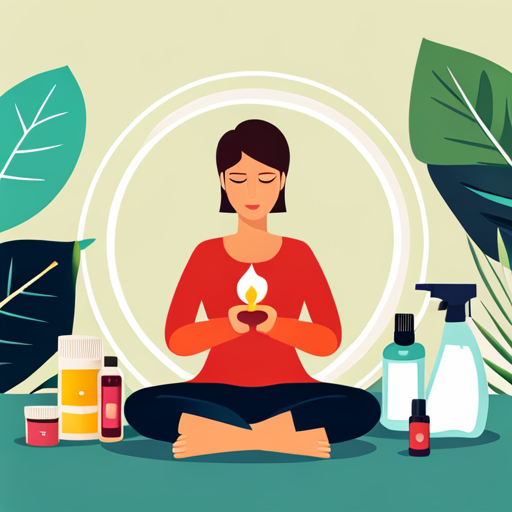
Are you experiencing menopause symptoms and searching for relief? You’re not alone. Menopause is a natural transition that every woman goes through, typically occurring between the ages of 45 and 55. During this time, hormonal fluctuations can lead to a range of physical and emotional symptoms, which can significantly impact a woman’s quality of life. In this blog post, we will explore the common symptoms of menopause and discuss effective strategies for managing and finding relief from these symptoms. Whether you’re currently going through menopause or want to support a loved one, this guide will provide valuable insights and practical tips.
The Common Symptoms of Menopause
Menopause is characterized by the cessation of menstrual periods for at least 12 consecutive months. However, the hormonal changes that occur during menopause can cause a variety of symptoms that vary in severity and duration for each woman. Let’s take a closer look at the most common symptoms:
1. Hot Flashes and Night Sweats
Hot flashes are one of the most well-known symptoms of menopause. They are characterized by a sudden feeling of intense heat, often accompanied by flushing of the face and excessive sweating. Hot flashes can occur at any time, interrupting daily activities and disrupting sleep patterns, leading to night sweats.
2. Mood Swings and Emotional Changes
Menopause can bring about significant emotional changes due to hormonal fluctuations. Many women experience mood swings, irritability, anxiety, and even depression. These emotional changes can be challenging to manage, but there are strategies that can help alleviate symptoms.
3. Sleep Disturbances
Insomnia and other sleep disturbances are common during menopause. Hormonal fluctuations, hot flashes, and night sweats can disrupt sleep patterns, leading to fatigue and irritability during the day. Finding effective strategies to improve sleep quality becomes essential during this period.
4. Vaginal Dryness and Sexual Discomfort
Decreased estrogen levels during menopause can lead to vaginal dryness and discomfort during sexual intercourse. These changes can impact a woman’s sexual well-being and intimate relationships. However, there are treatments and self-care practices that can help alleviate these symptoms.
Effective Strategies for Managing Menopause Symptoms
While menopause symptoms can be challenging, there are various strategies that can help manage and alleviate these symptoms. Here are some effective approaches:
1. Lifestyle Modifications
Simple lifestyle changes can have a significant impact on menopause symptoms. Incorporating regular exercise into your routine can help reduce hot flashes and improve mood. A balanced diet rich in fruits, vegetables, and whole grains can also help alleviate symptoms. Avoiding triggers such as caffeine and spicy foods can minimize hot flashes as well.
Exercise:
Engaging in regular physical activity, such as brisk walking, swimming, or yoga, can help alleviate menopause symptoms. Exercise improves overall well-being, reduces stress, and promotes better sleep. Aim for at least 30 minutes of moderate-intensity exercise most days of the week.
Diet:
Avoiding certain foods and incorporating others into your diet can help manage menopause symptoms. Limiting caffeine and alcohol consumption can reduce hot flashes and improve sleep quality. Including foods rich in phytoestrogens, such as soy products, flaxseeds, and legumes, may help alleviate symptoms as well.
Stress Management:
Managing stress is crucial during menopause, as it can exacerbate symptoms. Engaging in stress-reducing activities like meditation, deep breathing exercises, and yoga can help promote relaxation and reduce the intensity of hot flashes and mood swings.
2. Hormone Replacement Therapy (HRT)
Hormone replacement therapy (HRT) involves taking estrogen and sometimes progesterone to relieve menopause symptoms. This treatment can effectively reduce hot flashes, night sweats, and vaginal dryness. However, HRT may not be suitable for everyone, and it is important to discuss the potential risks and benefits with your healthcare provider before considering this option.
Alternative Therapies and Self-Care Practices
Aside from lifestyle modifications and hormone replacement therapy, there are alternative therapies and self-care practices that can help manage menopause symptoms:
1. Herbal Remedies
Some herbal remedies, such as black cohosh and red clover, have been found to relieve menopause symptoms for certain individuals. However, it is important to consult with a healthcare professional or herbalist before trying any herbal remedies, as they may interact with medications or have side effects.
2. Acupuncture
Acupuncture, a traditional Chinese medicine practice, involves the insertion of thin needles into specific points on the body. It has been shown to help alleviate hot flashes and improve sleep quality in some women experiencing menopause. Consult with a licensed acupuncturist to explore this option.
3. Mind-Body Techniques
Practicing mind-body techniques, such as meditation, mindfulness, and relaxation exercises, can help reduce stress and promote overall well-being during menopause. These techniques can be done independently or through structured programs like yoga or tai chi.
4. Supportive Therapies
Joining a support group or seeking therapy can provide emotional support and coping strategies for managing menopause symptoms. Sharing experiences with others going through similar challenges can be empowering and help alleviate feelings of isolation.
When to Seek Medical Advice
While many menopause symptoms can be managed with lifestyle changes and alternative therapies, it is essential to seek medical advice if you experience severe or persistent symptoms. Your healthcare provider can offer guidance, perform necessary tests, and recommend appropriate treatments or medications to help alleviate your symptoms.
Conclusion
In conclusion, menopause is a natural transition that brings about hormonal changes and a range of physical and emotional symptoms. However, with the right strategies and support, these symptoms can be effectively managed, allowing women to navigate this phase with minimal disruption to their daily lives. From lifestyle modifications to alternative therapies and seeking medical advice when needed, there are multiple avenues for finding relief and improving overall well-being during menopause. Remember, every woman’s experience is unique, so it may take some trial and error to find the strategies that work best for you. By staying informed and proactive, you can successfully navigate through menopause and embrace this new chapter of your life with confidence and vitality.